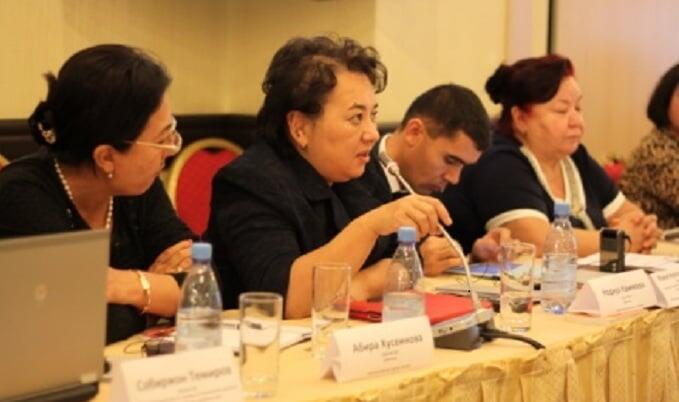ALMATY – Improving assistance to victims of trafficking in human beings and smuggled migrants in Central Asia was the goal of a series of meetings culminating in a regional workshop organized by UNFPA in Almaty in October.
“The meetings served to discuss how to apply international standards and good practices in Central Asia,” said Nikolai Botev, the Director of UNFPA’s Sub-regional Office for Central Asia.
“As a result, state agencies, shelter staff and social workers will be in a better position to identify trafficking victims and smuggled migrants, in particular women and children, and provide them with adequate protection and assistance, including quality sexual and reproductive health care.”
A total of over 80 state employees and civil society workers participated in the regional event and the four preceding national workshops held in Kazakhstan, Tajikistan, Turkmenistan and Uzbekistan.
Central Asia is a major migration corridor, and there are significant irregular migration flows, both within and from the region.
n assessment of assistance systems in the region, conducted by UNFPA in 2012, revealed that trafficking victims and smuggled migrants often receive inadequate assistance because of a lack of functioning identification and referral systems.
In many cases, access to protection and assistance is only provided in return for cooperation with investigation authorities. Often legal provision providing victim protection and support are not implemented in practice. Where assistance is available, it focuses on trafficking victims, and rarely on smuggled or other vulnerable migrants.
Workshop participants said the main obstacles include lack of funding, insufficient institutional mechanisms for protection and assistance at national and local levels, lack of training of frontline staff providing assistance, lack of clear criteria to identify victims, and lack of assistance and protection instruments at the regional level.
“As trafficked women and girls face high sexual and reproductive health risks, it is essential to provide service providers with information and training for ensuring quality counseling and services,” Botev said. “This workshop provided a unique opportunity to civil society and shelter staff to increase their capacity to apply relevant international standards in their work with trafficking victims and smuggled migrants.”
Participants also received targeted advocacy and information materials that they can use to strengthen victim support and collaboration between government agencies, professional shelters and NGOs.
The workshops took place as part of a broader regional programme on strengthening the capacity of Central Asian countries in protecting and assisting trafficking victims and smuggled migrants, which is led by the UN Office on Drugs and Crime and supported by the European Union and the United States.


